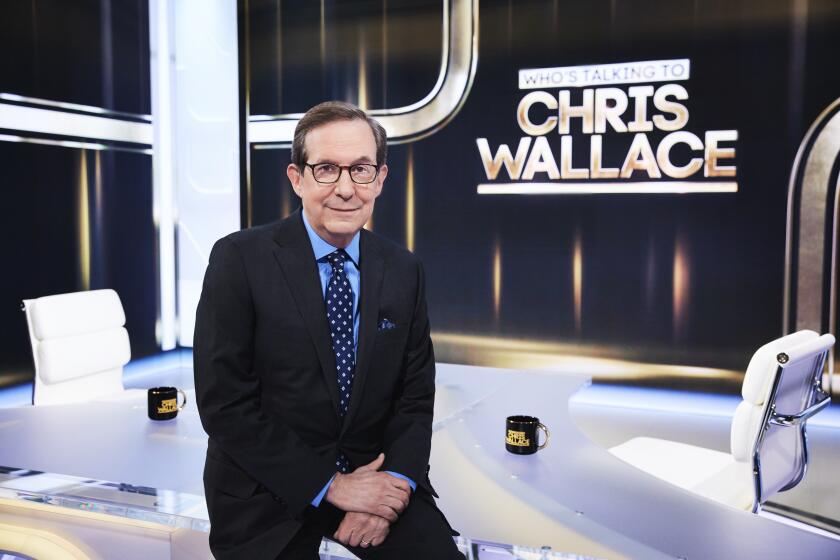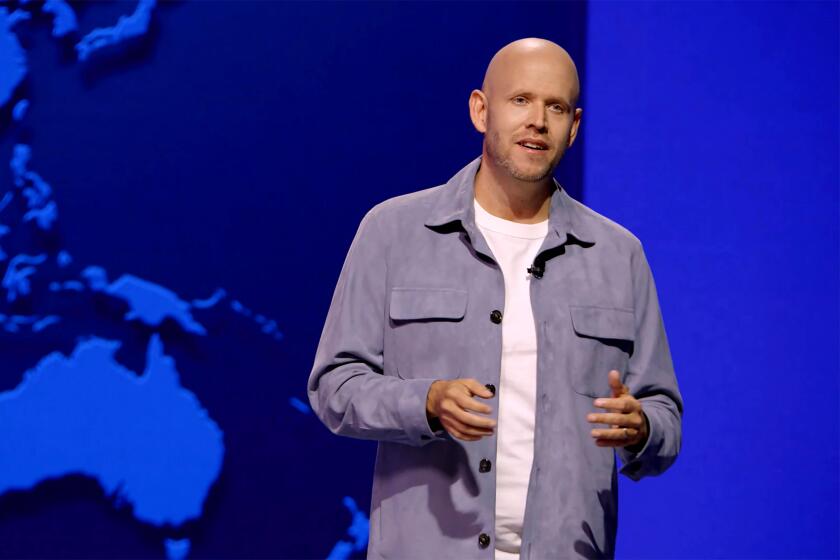Column: Harvey Weinstein’s convictions show that rape is rape, no matter his wealth or power
Harvey Weinstein had his walker in court on Monday but he did not walk.
At least not free.
In the minutes following Weinstein’s conviction on two counts of rape and felony sexual assault, at least one on-air legal analyst was in the midst of discussing the possibility of bail when word came that Judge James Burke had ordered Weinstein to be taken into custody until his March 11 sentencing.
He was put in handcuffs, helped to his feet and led away. It may not be perfect justice — he was found not guilty on two counts of predatory sexual assault — but it was more than many hoped for a year ago, or even a few days ago when the jury revealed it was hung on two counts.
For the last six weeks, Weinstein entered that Manhattan courtroom supported by a walker and a career in which multiple accusations of rape and sexual assault had been silenced by threats, denials, character assassinations, monetary settlements and NDAs.
But on Monday, he left in handcuffs, flanked by two court officers and offering a new hope for those who have suffered sexual abuse at the hands of the rich and powerful. Weinstein stood convicted of raping Jessica Mann and of sexually assaulting Mimi Haley.
Two women who withstood hours of emotionally traumatic testimony, including often near-mocking questioning by defense attorney Donna Rotunno, who, during the trial, told “The Daily” podcast that she had never been sexually assaulted “because I would never put myself in that position.”
In case anyone thought we had advanced beyond “blame the victim” thinking in rape cases.
Two women who, as stand-ins for the more than 80 others who have accused Weinstein of sexual abuse, became the first to face a judge and jury in what has been characterized by some as “a witch hunt.”
In case anyone thought modern society had rejected that any group of women making accusations about rich and powerful men were liars, crazy or, well, witches.
And yet, finally, we have done both of those things. Or at least the seven men and five women who made up the jury did.
Weinstein’s attorneys have vowed to appeal, but the tagline “he’ll never do time” that has marked the list of accusations against Weinstein and others that have grown to horrifying #MeToo heights since the New York Times broke its first story about sexual harassment payouts has fallen into the gutter where it belongs.
Meanwhile, “his career is over,” once considered the ultimate punishment for Weinstein and those accused in the #MeToo movement, has taken on a whole new meaning. Accusations of rape and sexual assault haven’t just ended Weinstein’s producing career; they’ve ended his career as a sexual predator as well.
When Weinstein was led out of court in handcuffs, his walker was left behind, along with all the other crutches that enabled him and others to attack with impunity for so long including “I would never put myself in that position” and “this is a witch hunt” mythologies, and the fear of retribution and an “army of lawyers” that appeared to put some men above the law.
Despite the retribution and an army of lawyers the eight women who testified faced, Weinstein was convicted anyway.
Although he was acquitted on three of the original five charges, the two felony convictions proved that “rape is rape ... no matter what,” noted New York District Attorney Cyrus R. Vance Jr. after the verdict was announced.
More important, they proved that rape and sexual assault are crimes even if the victims did not immediately go to the police or their lawyers, even if they later exchanged friendly texts with their attacker. And that, more than any list of names and accusations, more than the removal of high-profile men from high paying jobs, more than any initiative or reacquaintance with sexual harassment policies, is what could make the world a better place.
Rape and sexual assaults are not, and have never been, HR issues, or two-sided battles of “she said, he said” semantics or “she should have known better” cultural perception. Rape and sexual assault are criminal acts that cannot be turned into something else by money or rumor or time or the actions of the victim. Even when those actions include a continued relationship with the attacker.
Women’s, and men’s, bodies are not gray areas in which harm and violation are somehow erased by context or reaction or even perceived reparation. Just because you have silenced someone, by one means or another, into not reporting a crime does not mean the crime was not committed. Just because you have committed crimes without being punished for years does not mean they aren’t crimes.
Or that you will never be punished for them.
Weinstein leaned heavily on his walker in court and all his other crutches in Hollywood for decades, but in the end they didn’t help. When the handcuffs were on, he had to walk to his cell alone and on his own two feet.
More to Read
The biggest entertainment stories
Get our big stories about Hollywood, film, television, music, arts, culture and more right in your inbox as soon as they publish.
You may occasionally receive promotional content from the Los Angeles Times.










